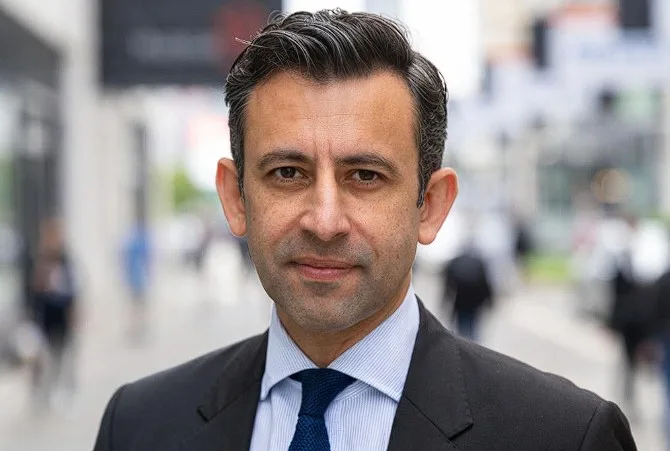
How Much Do Solar Panels Cost for a 3,000 Square Foot House?
May 13, 2025
Why does my iPhone say ‘No SIM’?
May 13, 2025Losing someone is tough—there’s no sugarcoating it. On top of the grief, you’ve got to deal with all the practical stuff, like figuring out who’s in charge of their affairs. A question that comes up a lot is: who has power of attorney after death if there is no will? It’s one of those things that you don’t think about until you’re trapped in the middle of it, and it can take a difficult time and make it into a muddle. I’ve experienced it within my own family, and it is not pleasant. So, let’s sit down and figure this out together using plain, simple words—like we’re hashing it out at a kitchen table.
Why is this even an issue? Because power of attorney (POA) is a big responsibility, and when someone dies without a will, it’s not always clear who’s supposed to step up. Does the POA keep going? Does someone else take over? We’re going to walk through what power of attorney is, why it stops at death, and—most importantly—who has power of attorney after death if there is no will. I’ll toss in some stories from my life, extra details, and tips to keep it real and helpful. Let’s dive in and make sense of it all.
What Is Power of Attorney and Who Has Power of Attorney After Death If There Is No Will?
Let’s start with the basics: what’s power of attorney anyway? It’s a legal arrangement in which an individual—let’s refer to them as the “principal”—appoints someone else (the “agent”) to act on their behalf. That might be paying bills, signing documents, dealing with bank accounts, or even making medical decisions if they’re too ill or elderly to do so themselves. It’s a safety net when times get difficult. But the big question is: who has power of attorney upon death if there’s no will?
The short answer is a twist: no one does. Power of attorney is not a lifetime job—it terminates when the individual granting it dies. Consider it to be a short-term pass that will expire. So, inquiring about who has power of attorney upon death when there is no will is practically asking who is driving a vehicle that’s already in the parking lot—it’s no longer in motion. But that doesn’t mean everything just stops. Someone still has to take care of the deceased person’s stuff, especially with no will to guide the way. We’ll get into that soon.
Why Power of Attorney Ends and Who Has Power of Attorney After Death If There Is No Will
You might be wondering, “Okay, but why does power of attorney stop when someone dies? ” It’s a good point. The entire concept of a POA is to do something for a person while he/she is still alive—assisting him/her when he/she can no longer cope by himself/herself. When he/she is no more, his/her wishes are not “operative” anymore, and his/her estate (everything he/she had in terms of money, assets, and property) comes into play. Then, who gains power of attorney after death in case there isn’t a will?
No one holds that position since the POA law shuts it off. Here’s an actual example: my grandpa had a power of attorney in place for my dad to manage his finances when he developed dementia. It was a dream come true—bills got paid, doctor appointments got taken care of. But when Grandpa passed away, my dad couldn’t just continue using that POA to sell his car or shut down his accounts. It was done. Who does power of attorney after death if there is no will in that scenario?
No one had to—someone else had to take over, and because Grandpa did not leave behind a will, it was not a smooth ride.
What Happens After Death Without a Will and Who Does Power of Attorney After Death If There Is No Will?
When someone passes away without leaving a will—also known as being “intestate,” lawyer talk—their belongings don’t simply sit idle gathering dust. The law has a way to determine who gets what and who does the getting. But here’s where power of attorney after death in the absence of a will rears its head: the POA agent doesn’t get it automatically. Because the POA terminates, the state intervenes with its own regulations.
Normally, a court appoints a person known as an “administrator” or “personal representative” to deal with the estate—think settling debts, dividing property, and wrapping up loose ends. So who has power of attorney upon death if there is no will? No one has POA anymore, but this administrator takes that same position. The catch? They’re not acting on the old POA—they’re working pursuant to court instructions, and who gets appointed varies based on family relationships and state statutes.
Who Assumes Responsibility and Who Exercises Power of Attorney Upon Death When There Is No Will?
OK, the POA’s out of the way—who gets power of attorney upon death in the absence of a will, or quite honestly, who rises to the occasion? With no will, the court consults the family roll call. There’s generally a priority order: the spouse first, followed by adult children, parents, siblings, and so on. The nearest living relative tends to get appointed to be the administrator.
Say my mom died intestate—my dad would most likely be the court’s choice to administer her estate. In his absence, it could default to me or my brother. But who wields power of attorney upon death when there isn’t a will? Still nobody—the POA’s vanished, and the administrator’s a new position. States all vary it slightly, so it’s good to take a look at what your state is doing.
My Uncle’s Mess: Who Has Power of Attorney Upon Death If There Is No Will? Let me tell you about my Uncle Pete. He passed away a few years back—no will, no strategy. He’d given my cousin Sarah power of attorney to handle his bank affairs while he was ill. When he died, Sarah believed she could continue using it to pay his bills and sell his truck. Nope—the bank told us, “Sorry, that’s done.” Who has power of attorney after death if there is no will? Not Sarah anymore.
The court appointed my Aunt Linda, his wife, as administrator, but it took an eternity to get started, and Sarah felt completely lost.How the Court Picks and Who Has Power of Attorney After Death If There Is No Will
If there is no will, the court does not simply toss a coin—instead, it follows a legal procedure to pick the administrator. So, who has power of attorney upon death when there is no will? No one retains POA, but the court selection steps in. They will inquire of family members if they are willing, beginning with the spouse or children. If no one comes forward or there is a brawl, the judge may opt for an impartial outsider—such as a lawyer or a public trustee.
It’s not simple or instant. You have to file paperwork, perhaps appear in court, and demonstrate you can do it. My Aunt Linda had to pull out bank records and make her case because my cousin felt she should have been selected. Who has power of attorney upon death if there is no will wasn’t the question—it was who could control the estate, and it was a struggle.
What the Administrator Deals With and Who Has Power of Attorney Upon Death In Case There Is No Will
When the court appoints an administrator, they’ve got a busy schedule—similar to what the POA did, but with a different name. They find all the assets of the deceased (bank accounts, home, vehicle), settle debts (loans or hospital expenses come to mind), and divide up the remainder between the heirs. Who has power of attorney upon death if there is no will, though? Nobody, but the administrator is calling the shots now.
It’s a headache—my Aunt Linda spent months tracking down my uncle’s old accounts, sorting out creditors, and calculating taxes. Who has power of attorney after death if there is no will wasn’t much use to her—the POA didn’t work, and she was forced to fit it together under court procedures. It’s a huge task, and without a will, there’s no guide.
When It Gets Messy and Who Has Power of Attorney After Death If There Is No Will
Sometimes, it’s not so easy. What if the family can’t decide who gets power of attorney upon death in the absence of a will—or who gets to be administrator? Perhaps there is no near family, or all the fighting relatives are squabbling over the estate. That’s when it becomes a soap opera. The court may appoint a stranger to sort it out or even freeze everything until the dust clears.
My neighbor’s father passed away intestate, and her three brothers made a war out of it. Who gets power of attorney upon death if no will ever entered our minds—the POA was gone. They couldn’t decide on an administrator, so the court appointed a lawyer. It took more than a year, and they all finished up frustrated.
Can You Plan Ahead for Who Has Power of Attorney After Death If There Is No Will?
Here’s the golden nugget: you can avoid all this drama if you plan ahead. Power of attorney ceases when you pass away, so who does power of attorney after death if there is no will won’t be an issue if you have a will or trust in place. A will specifies an executor—somebody you trust to manage your estate upon your passing. It’s like giving them the reins.
My father did this the hard way after Grandpa’s disaster. He included a will where he made my mother executor. Who has authority of attorney on death if there is no will won’t be our issue—his scheme cuts in. It’s an easy solution that eliminates a whole heap of headaches.
What If There’s a Will and Who Has Power of Attorney After Death If There Is No Will
Just for fun, let’s turn it around: if there’s a will, it’s another game. The will appoints an executor, and who is in charge with power of attorney after death in case there’s no will does not even matter—the POA still terminates, but the executor takes over. The court looks at the will, validates the selection, and they’re on their way. No will? Back to the administrator lottery at the court’s.
My Friend’s Smooth Ride: Who Has Power of Attorney After Death If There Is No Will?
My friend Mark’s mother passed away last year, but she left behind a will with him as executor. It was night and day from my uncle’s disaster. Who does power of attorney after death when there isn’t one didn’t come into play—her POA terminated, and Mark became responsible with explicit instructions. It wasn’t easy, but it was considerably less chaotic.
Tips to Avoid the Drama of Who Has Power of Attorney Upon Death If There Is No Will
No one wants a legal nightmare following a loved one’s passing. So, how do you prevent who has power of attorney upon death if there is no will from becoming a nightmare? Here’s what I’ve learned:
Write a Will: It’s the best option—choose someone you can trust to handle it.
Chat with Family: Let them know what you’re doing, even if it’s just a conversation for now.
Set Up a POA Early: It assists when you’re alive, even if it terminates afterwards.
Organize Your Stuff: Write down your accounts and assets—makes it simpler for whoever comes forward.
Get Advice: A planner or lawyer can put you right on the cheap and quick.
My Dad’s Backup Plan: Who Has Power of Attorney After Death If There Is No Will?
After watching my uncle’s family scramble, my dad got proactive. He’s got a POA for me while he’s alive and a will naming me executor after. Who has power of attorney after death if there is no will won’t haunt us—he’s got it locked down. It’s a weight off all our shoulders.
Final Thoughts on Who Has Power of Attorney After Death If There Is No Will
So, who does power of attorney after death in the absence of a will? Nobody retains that authority—POA cuts off upon death. Without a will, the court appoints an administrator based on familial relationship and state regulations. It’s a system that works but is not always pretty—particularly if nobody is prepared.
The real deal? Plan ahead if you can. A will or trust is better than leaving who has power of attorney after death if there is no will to chance. Losing someone is difficult enough—don’t add legal stuff to the pain. Keep it simple, talk it out, and you’ll make it easier for everyone left behind.




